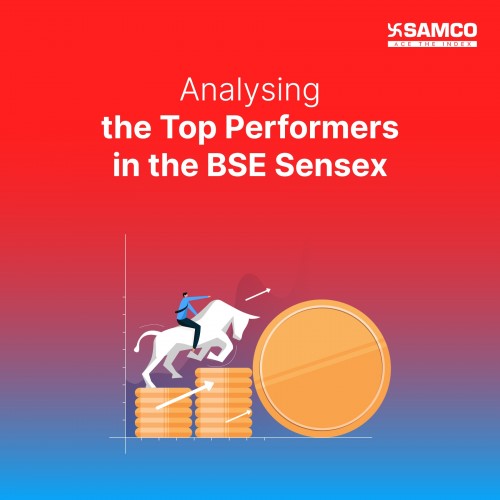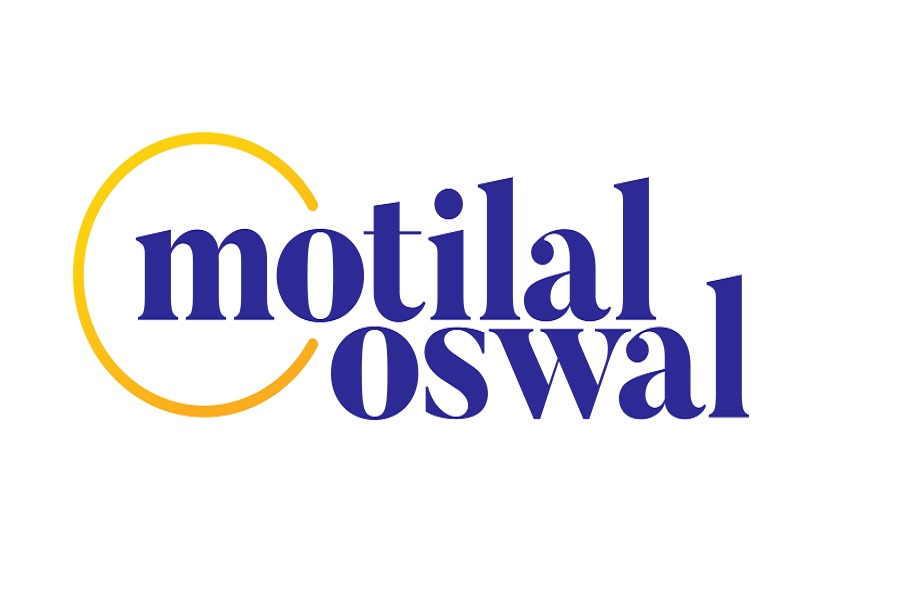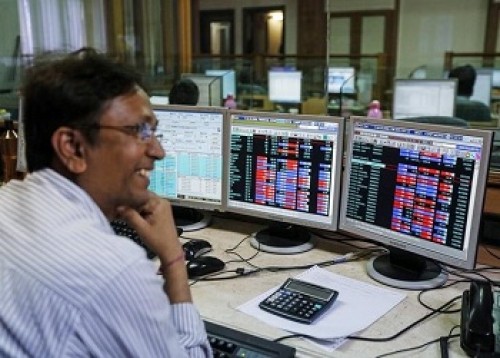Analysing the Top Performers in the BSE Sensex: Which Companies have Consistently Delivered Strong Returns?

For anybody looking to invest in the stock market, it is important to have a long-term perspective of the market and not get caught up in short-term fluctuations. There are stocks that have remained solid despite the ups and downs in the market over the past decade or so. This is because short-term fluctuations in the market are bound to happen however the long-term growth story of fundamentally strong companies mostly remain intact and these companies give an investor, good returns
Investors are people who buy stocks of fundamentally strong companies and hold on to them for a very long time. Longer holding time of at least 10-15 years helps them to take benefit of the power of compounding. According to Warren Buffet, “If you aren’t thinking about owning a stock for 10 years, don’t even think about owning it for 10 minutes.” Although past performance is not a measure of future performance, it is helpful to pick companies that have shown resilience over a longer time period. In this article, we will analyze the top-performing stocks on BSE Sensex over the last 10 years. We will take a look at the below:
What is Sensex CAGR for the last 10 years
Sensex which is an acronym for Sensitivity Index comprises of 30 stocks listed on the BSE Ltd – erstwhile Bombay Stock Exchange. It is the barometer of the Indian Stock Market. Its stocks represent various sectors and industries in India and are a reflection of the overall market sentiment.
Since its inception in 1979, Sensex has generated a CAGR of 16%. It started with a base of 100 in 1979 & its current value is around 60,000. Thus it has multiplied investors’ wealth by 600 times over a period of 43 years. In comparison, gold which is one of the major investment classes in India has multiplied only 66 times since 1979. Thus Sensex has beaten gold by a huge margin. It also shows that Sensex has been able to beat inflation over a long period of time by consistently delivering stronger returns.
The stocks in the Sensex are not fixed. Many stocks are removed from the index and many are included over a period of time. However, over the last 10 years, the number of stocks has remained fixed at 30.
In the last 10 years, Sensex has given a return of 12% CAGR. There have been many stocks in the Sensex which have been able to give returns more than Sensex in the last 10 years. As per the Current Market Price as on 20th April 2023, the following 19 companies have been able to beat the CAGR returns of Sensex in the last 10 years.
List of companies that have given better returns than Sensex
|
Sr. no |
Name of company |
10 years return % |
Value of 1 lakh invested |
|
1 |
Bajaj Finance |
47.3 |
48,38,160 |
|
2 |
Bajaj Finserv |
32.87 |
17,15,021 |
|
3 |
Titan |
25.15 |
9,42,559 |
|
4 |
Asian Paints |
19.86 |
6,11,988 |
|
5 |
Reliance |
19.62 |
5,99,844 |
|
6 |
HCL Tech |
19.12 |
5,75,237 |
|
7 |
Maruti Suzuki |
18.92 |
5,65,652 |
|
8 |
Kotak Mahindra Bank Ltd |
18.74 |
5,57,148 |
|
9 |
Hind. Unilever |
17.84 |
5,16,330 |
|
10 |
HDFC Bank |
16.96 |
4,79,042 |
|
11 |
Tech Mahindra |
15.94 |
4,38,867 |
|
12 |
Infosys |
15.87 |
4,36,225 |
|
13 |
Nestle |
15.86 |
4,35,848 |
|
14 |
TCS |
15.86 |
4,35,848 |
|
15 |
ICICI Bank |
15.66 |
4,28,383 |
|
16 |
Ultra Tech Cement |
14.85 |
3,99,310 |
|
17 |
Tata Steel |
13.97 |
3,69,748 |
|
18 |
HDFC Ltd |
12.62 |
3,28,213 |
|
19 |
L&T |
12.6 |
3,27,630 |
Therefore, the stocks listed in the table above have been able to beat the Sensex and give investors higher returns on their investments. While Sensex generated a CAGR of 12% over the last 10 years, the above stocks have given more than 12% returns in the same exact period. Let us look at some of these top-performing stocks in a little detail.
1. Bajaj Finance Ltd
Bajaj Finance Limited (BFL) is a deposit-taking non-banking finance company (NBFC) of the Bajaj Group and is a subsidiary of Bajaj Finserv Limited, which is the holding company of the Bajaj Group for its financial services business.
The stock generated 47% CAGR in the past 10 years. The company’s AUM has grown at a CAGR of 37% in the last 15 years (FY08-FY22). BFL had assets under management (AUM) of Rs 218,366 crore as on September 30, 2022.
The company has a diverse product offering classified into various segments, such as consumer finance (32% of the AUM); SME finance (13% of the AUM); commercial finance, such as loan against shares – (LAS; 10% of the AUM); rural finance (10% of the AUM) and mortgage finance (33% of the AUM).
Over the past five to seven years, the company has developed a strong franchise and geographical reach with a presence in 3,685 locations and over 143,300 active distribution points of sale with a customer base of 62.9 million customers as on September 30, 2022.
BFL enjoys the support of a strong promoter (Bajaj) group, where Bajaj Finserv Limited, the flagship holding company of the group for financial services businesses, holds around 52.49% stake in BFL.
The company’s earnings have consistently grown from FY16 onwards with net interest margin (NIM) ranging over 9%, helped by yields on portfolio between 16% and 17.5% and cost of funds between 7.5% and 9%. The Company booked highest ever new loans of 29.6 million in FY23.
The company has maintained a good Return on asset of 3.68% in last 3 years.
2. Bajaj Finserv Ltd
Bajaj Finserv Limited, is the holding company of the Bajaj Group for its financial services business. Bajaj Finserv held 52.49% stake in Bajaj Finance Ltd. as on September 30, 2022. The stock has generated CAGR of 33% over the last 10 years. Bajaj Finserv Ltd operates in general insurance and consumer finance businesses and plans to expand its business by offering a wide array of financial products and services in India. Apart from financial services, the company is also active in wind-energy generation. The company’s net profit has risen from Rs 141 crore in FY2018 to Rs 424 crore in FY2022.
3. Titan Company Ltd
TCL is part of Tata Group of Companies, one of India’s largest and reputed business groups. Tata Group holds a 25.02% (including the stake of Ewart Investments and Piem Hotels) equity stake in TCL, with Tata Sons Private Limited having a 20.84% stake. TIDCO has a 27.88% stake in Titan. Therefore, the company has strong parentage and support from the Tata group and TIDCO which is a huge positive for TCL.
The company generates revenues mainly from three segments, viz. Branded Jewellery (~88%), Watches (~8%) and Eye Wear (~2%), with the balance from the Other Accessories such as Fragrances and Ethnic Wear segments. The company is debt free and has a strong balance sheet enabling it to report stable earnings growth across business cycles. However, fluctuations in gold prices, regulatory risks in jewellery industry are some key risk areas for the company.
Company has shown healthy growth in its revenue and operating margins (except FY21 due to Covid) over FY17-FY22. Its revenue has increased at a CAGR of 17% from Rs 13,244 crore in FY17 to Rs 28,799 in FY22. The overall gearing as on March 31, 2022 stood at 0.81x as against 0.79x as on March 31, 2021.
4. Asian Paints Ltd
Asian Paints stock has given a CAGR of 86 in the last 10 years.
Asian Paints Ltd. is a part of the Asian Paints group, the largest paint manufacturer in India. About 80% of its revenue comes from decorative paints segment and the remaining from industrial paints and overseas operations.
The company holds leadership position in the domestic paints sector. Its financial risk profile remains strong aided by low debt on its balance sheet and sizeable liquid surplus estimated of about Rs 3,400 crore as on September 2021. The company remains net debt free. The company also enjoys a healthy operating margin of 16-19% which is higher than that of peers. These strengths are partially offset by the volatility in key raw material prices and limited pricing flexibility.
5. Reliance
Reliance Industries Limited (RIL), is a Fortune Global 500 company and is the largest private sector company in India. The company is highly integrated in its operations with presence across the energy and materials value chain, along with a significant and growing presence in the retail and telecom sectors. The key business segments of RIL include oil and gas exploration, petroleum refining, petrochemicals, retail and digital service.
The company has attained leadership position in the telecom space, as well as dominant market position in the organised retail sector. The induction of various strategic partners in the digital, retail and media & entertainment businesses has also benefitted the company. The above-mentioned strengths mostly offset its exposure to risks relating to the inherent cyclicality and volatility in crude oil prices. The company is also prone to regulatory as well as technology risks associated with the telecom segment.
6. HCL Technologies
HCL Technologies is a leading Indian IT service provider, offering enterprise application services, engineering, R&D, custom applications, remote infrastructure management, and business process outsourcing. The company caters to various industry groups including financial services, manufacturing, telecom, retail, media and entertainment, and energy and utilities.
It is the third-largest, listed Indian IT services provider, in terms of revenue. The company has negligible gearing of 0.06 time, and has cash and cash equivalents of Rs 18,875 crore as on March 31, 2022.
The company faces risks such as intense competition in the information technology (IT) industry and volatility in foreign exchange rates as well as protectionist measures particularly from the US). However, the company’s presence across diverse verticals and service lines, and the robust financial risk profile and liquidity offsets the above risks.
7. Maruti Suzuki
Maruti Udyog was started as a joint venture between the government of India and Maruti. Later in 2002, it became a subsidiary of Suzuki Motor Corporation SMC). Currently, SMC owns equity of more than 50% in the company. The Company is engaged in the business of manufacturing and sale of passenger vehicles in India. Maruti Suzuki’s product range extends from entry-level small cars like Alto 800, Alto K10 to the luxury sedan Ciaz.
The company’s revenue has increased from Rs 79762 crore in Fy2018 to Rs 88295 in FY 2022. The current PE of Maruti Suzuki is high at 35.59.
However, the company has shown a poor profit growth of -20.52% for the past 3 years. The company has also shown a poor revenue growth of 0.87% for the past 3 years.
The Company is virtually debt free and has a healthy Interest coverage ratio of 37.4. The company also has an efficient Cash Conversion Cycle of -35.34 days. The company has a high promoter holding of 56.48%. India’s auto industry is the fifth largest in the world. India is also a big auto exporter and has strong export growth expectations for the near future. The government is also providing support to the domestic auto companies
Conclusion
It is said that the stock market of any country is the barometer of its economic growth. Over the last 10 years, the BSE Sensex has seen huge volatility and bears, yet it has managed to post robust growth, beating other asset classes. This is a testament to the country’s economic growth and future potential.
The factors that largely affect the share market performance are changes in Government policy, Inflation or recession, budget announcement, change in interest rates, political changes, geopolitical tensions, natural disasters, and activities of FII and DII in the stock market. Changes in exchange rates, gold, and bond prices also impact stock performance.
Above all the challenges, the above-mentioned stocks surpassed the BSE Index in the same period.
However, investors should not select the stocks for investment based only on historical returns. They should also consider the fundamentals of the company before picking up stocks for investment. The stocks with strong fundamentals are likely to earn good returns in the long run.
Samco is the top discount broker in India. Samco mission is to help every stock market participant to consistently Ace the Index and achieve their best financial performance. Ace the Index is a nationwide initiative with the aim of empowering investors & traders to enhance their investment performance and outperform benchmark returns. The mission is designed to provide participants with the tools, resources, and knowledge they need to succeed in the complex and ever-changing world of investing.Open a demat account with Samco!


















